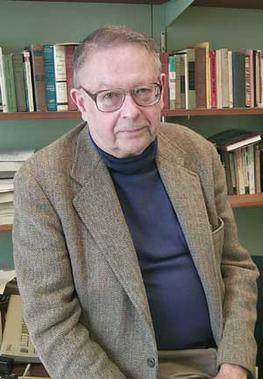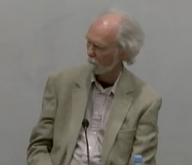Neorealism or structural realism is a theory of international relations that emphasizes the role of power politics in international relations, sees competition and conflict as enduring features and sees limited potential for cooperation. The anarchic state of the international system means that states cannot be certain of other states' intentions and their security, thus prompting them to engage in power politics.

International relations (IR) are the interactions among sovereign states. The scientific study of those interactions is also referred to as international studies, international politics, or international affairs. In a broader sense, the study of IR, in addition to multilateral relations, concerns all activities among states—such as war, diplomacy, trade, and foreign policy—as well as relations with and among other international actors, such as intergovernmental organizations (IGOs), international nongovernmental organizations (INGOs), international legal bodies, and multinational corporations (MNCs). There are several schools of thought within IR, of which the most prominent are realism, liberalism and constructivism.
International relations theory is the study of international relations (IR) from a theoretical perspective. It seeks to explain behaviors and outcomes in international politics. The four most prominent schools of thought are realism, liberalism, constructivism, and rational choice. Whereas realism and liberalism make broad and specific predictions about international relations, constructivism and rational choice are methodological approaches that focus on certain types of social explanation for phenomena.
The concept of balancing derives from the balance of power theory, the most influential theory from the realist school of thought, which assumes that a formation of hegemony in a multistate system is unattainable since hegemony is perceived as a threat by other states, causing them to engage in balancing against a potential hegemon.

Kenneth Neal Waltz was an American political scientist who was a member of the faculty at both the University of California, Berkeley and Columbia University and one of the most prominent scholars in the field of international relations. He was a veteran of both World War II and the Korean War.
Regime theory is a theory within international relations derived from the liberal tradition that argues that international institutions or regimes affect the behavior of states or other international actors. It assumes that cooperation is possible in the anarchic system of states, as regimes are, by definition, instances of international cooperation.

International security is a term which refers to the measures taken by states and international organizations, such as the United Nations, European Union, and others, to ensure mutual survival and safety. These measures include military action and diplomatic agreements such as treaties and conventions. International and national security are invariably linked. International security is national security or state security in the global arena.

Realism, a school of thought in international relations theory, is a theoretical framework that views world politics as an enduring competition among self-interested states vying for power and positioning within an anarchic global system devoid of a centralized authority. It centers on states as rational primary actors navigating a system shaped by power politics, national interest, and a pursuit of security and self-preservation.
Transnational feminism refers to both a contemporary feminist paradigm and the corresponding activist movement. Both the theories and activist practices are concerned with how globalization and capitalism affect people across nations, races, genders, classes, and sexualities. This movement asks to critique the ideologies of traditional white, classist, western models of feminist practices from an intersectional approach and how these connect with labor, theoretical applications, and analytical practice on a geopolitical scale.

Barry Gordon Buzan, FBA, FAcSS is a British political scientist. He is an Emeritus Professor of International Relations at the London School of Economics and a honorary professor at the University of Copenhagen and Jilin University. Until 2012 he was Montague Burton Professor of International Relations at the LSE. Buzan sketched the Regional Security Complex Theory and is therefore together with Ole Wæver a central figure of the Copenhagen School.
In international relations (IR), constructivism is a social theory that asserts that significant aspects of international relations are shaped by ideational factors. The most important ideational factors are those that are collectively held; these collectively held beliefs construct the interests and identities of actors.
Offensive realism is a structural theory in international relations that belongs to the neorealist school of thought and was put forward by the political scholar John Mearsheimer in response to defensive realism. Offensive realism holds that the anarchic nature of the international system is responsible for the promotion of aggressive state behavior in international politics. The theory fundamentally differs from defensive realism by depicting great powers as power-maximizing revisionists privileging buck-passing and self-promotion over balancing strategies in their consistent aim to dominate the international system. The theory brings important alternative contributions for the study and understanding of international relations but remains the subject of criticism.
In international relations theory, the concept of anarchy is the idea that the world lacks any supreme authority or sovereignty. In an anarchic state, there is no hierarchically superior, coercive power that can resolve disputes, enforce law, or order the system of international politics. In international relations, anarchy is widely accepted as the starting point for international relations theory.
Defensive neorealism is a structural theory in international relations that is derived from the school of neorealism. The theory finds its foundation in the political scientist Kenneth Waltz's Theory of International Politics in which Waltz argues that the anarchical structure of the international system encourages states to maintain moderate and reserved policies to attain national security. In contrast, offensive realism assumes that states seek to maximize their power and influence to achieve security through domination and hegemony. Defensive neorealism asserts that aggressive expansion as promoted by offensive neorealists upsets the tendency of states to conform to the balance of power theory, thereby decreasing the primary objective of the state, which they argue to be the ensuring of its security. Defensive realism denies neither the reality of interstate conflict or that incentives for state expansion exist, but it contends that those incentives are sporadic, rather than endemic. Defensive neorealism points towards "structural modifiers," such as the security dilemma and geography, and elite beliefs and perceptions to explain the outbreak of conflict.

Complex interdependence in international relations and international political economy is a concept put forth by Robert Keohane and Joseph Nye in the 1970s to describe the emerging nature of the global political economy. The concept entails that relations between states are becoming increasingly deep and complex. These increasingly complex webs of economic interdependence undermine state power and elevate the influence of transnational non-state actors. These complex relationships can be explored through both the liberal and realism lenses and can later explain the debate of power from complex interdependence.
Randall L. Schweller is Professor of Political Science at the Ohio State University, where he has taught since 1994.
Liberal institutionalism is a theory of international relations that holds that international cooperation between states is feasible and sustainable, and that such cooperation can reduce conflict and competition. Neoliberalism is a revised version of liberalism. Alongside neorealism, liberal institutionalism is one of the two most influential contemporary approaches to international relations.

Classical realism is an international relations theory from the realist school of thought. Realism makes the following assumptions: states are the main actors in the international relations system, there is no supranational international authority, states act in their own self-interest, and states want power for self-preservation. Classical realism differs from other forms of realism in that it places specific emphasis on human nature and domestic politics as the key factor in explaining state behavior and the causes of inter-state conflict. Classical realist theory adopts a pessimistic view of human nature and argues that humans are not inherently benevolent but instead they are self-interested and act out of fear or aggression. Furthermore, it emphasizes that this human nature is reflected by states in international politics due to international anarchy.
International economic structures range from complete autarky to complete market openness. This structure has undergone numerous changes since the beginning of the nineteenth century. The state-power theory as put into perspective by Stephen Krasner (1976), explains that the structure of international trade is determined by the interests and power of states acting to maximize their aggregate national income, social stability, political power and economic growth. Such state interests can be achieved under free trade.
Liberalism is a school of thought within international relations theory which revolves around three interrelated principles:






